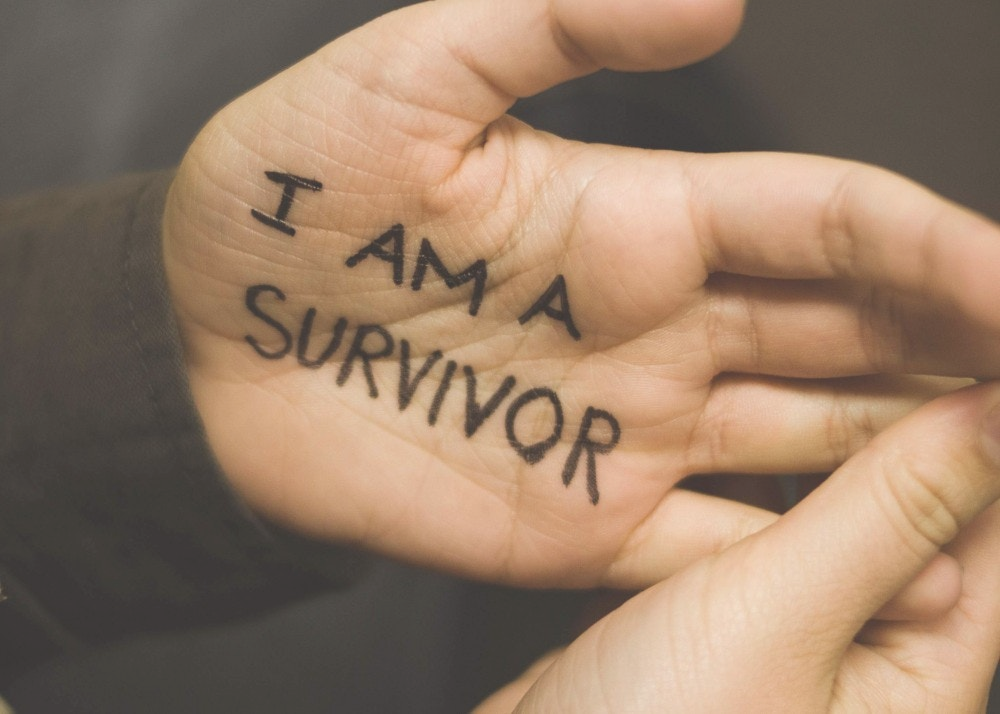|
You’ve probably heard of the flight or fight response, but what is less talked about is the freeze response. This response is very common with sexual assault. While the brain uses this method to try to survive a threat, society will often view freezing or lack of fighting as a sign of consent and as a way to blame the survivor for not trying to stop the attack. This is NOT the case. When your brain freezes, this happens outside of conscious thought; you don’t get to choose not to freeze. When you perceive an imminent threat, your body reacts instinctively by either fighting the threat or running away from it to ensure survival. The third response is to freeze. In a matter of milliseconds, your brain has determined that you cannot safely outrun the threat or defeat it in a fight; there is no safe way out so it must freeze. By freezing, you aren’t provoking the threat, and it may reduce the harm done to you. If you were to try and fight off the assailant or run away and be unsuccessful, you risk being hurt further or possibly killed. Freeze is used as a smart defence strategy. Just like a possum plays dead so the predator will leave it alone, this is what often happens during a sexual assault. Common Feelings When Experiencing Freeze:
But why is freezing so common during a sexual assault? Well, there are many factors. For one, the majority of sexual assaults are done to assert power over another, and not for sexual reasons. A lot of the time if someone is trying to sexually assault you they may be bigger than you, have authority over you, or be someone you trust. This complicates how your body reacts. Your brain is more fearful of running away or fighting back if it thinks it will be unsuccessful, which can be the case if the person is larger than you. If the person is in a position of authority, you may feel scared to go against them for fear of what they may do. In about 82% of sexual assault cases, survivors know their perpetrators. Having this previous relationship confuses your brain because you may have thought that you could trust them and that they would not harm you. After being sexually assaulted, you may be filled with many questions and feelings. Often sexual assault survivors feel guilt; they worry it was their fault or that they should’ve done more to stop it. This feeling is especially common in people who froze during the attack. I was one of those people. I felt guilt and shame because I didn’t fight back or run away. After you tell somebody what happened, one of the first questions some people ask is “what did you do?”. To say “nothing,” or “I froze,” makes you feel guilty. You feel like you should have done more, and that if you did more, then you could have stopped it. Some people may even take the fact that you froze and didn’t fight back as a sign of consent; that you wanted it to happen and now you’ve just changed your mind. This is NOT true. We don’t get to pick whether our response is fight, flight, or freeze. It happens before we have a conscious thought of what to do. I was full of confusion when I was sexually assaulted. I couldn’t comprehend what was happening to me; I couldn’t believe what was happening. I didn’t know what to do. My instinct was to put my hands on his abdomen so that it would be more difficult for him and would hopefully stop him. When that failed, I did not know what to do. I felt trapped and hopeless. My body went numb. I remember staring at the radio and dissociating. Time went by slowly. After the assault, I was in shock for a few hours. This made me vulnerable for a second assault by the same person. This time I didn’t fight because I knew it was useless. I felt like I was no longer in my body. I held a lot of guilt and shame about how my body responded. I thought that I should’ve fought back or ran away or done something…anything. I was worried about what people would think. I was afraid people would think I was lying about being raped because I didn’t fight back. It took me a long time to come to terms with how I reacted; until I learned that freezing is how my body protected itself, and helped me survive. I had minimum physical damage, which may have been different if I tried to fight or run. My body did what it needed to do to survive. And I learned that I couldn’t fault it for that. Freezing can happen to anyone and is very common among sexual assault survivors. This is the survival tactic that your brain chose to help you survive the attack. It is unfair that by freezing, survivors are filled with guilt and shame, since there are already so many other thoughts and feelings that occur after a sexual assault. Feeling guilty for how you reacted should not be one of them. As hard as it can be to not listen to other people and what they say, just remember that you survived. By freezing, your body did what it had to do to keep you alive; and there is no shame in that. In Ontario, May is recognized as Sexual Assault Awareness Month to bring attention to the devastating impact sexual assault has on survivors. It is also a time to discuss how to prevent this violence from happening and how we can better support survivors. There is still a long way to go to end the stigma of being a sexual assault survivor and to help survivors have easy access to much needed services such as counselling, proper medical attention, and legal support. You can help raise awareness by wearing purple and having these conversations about how to support survivors and stop the violence. SACHA Sexual Assault Centre. (n.d.). Statistics. SACHA Sexual Assault Centre. Retrieved from
http://sacha.ca/resources/statistics. |
|
OverviewNWO’s source for all things relationships, mental health, wellness, lifestyle, and pandemic support. Kelly Magazine is a mental health outreach initiative created by Kelly Mental Health and supported by Kelly Mental Health Foundation, a non-profit organization dedicated to improving the community in the area of mental health.
|
Magazine |
Follow Us |
In support of @kellymentalhealthfndn |
© COPYRIGHT. ALL RIGHTS RESERVED. WEB DESIGN BY KMH





